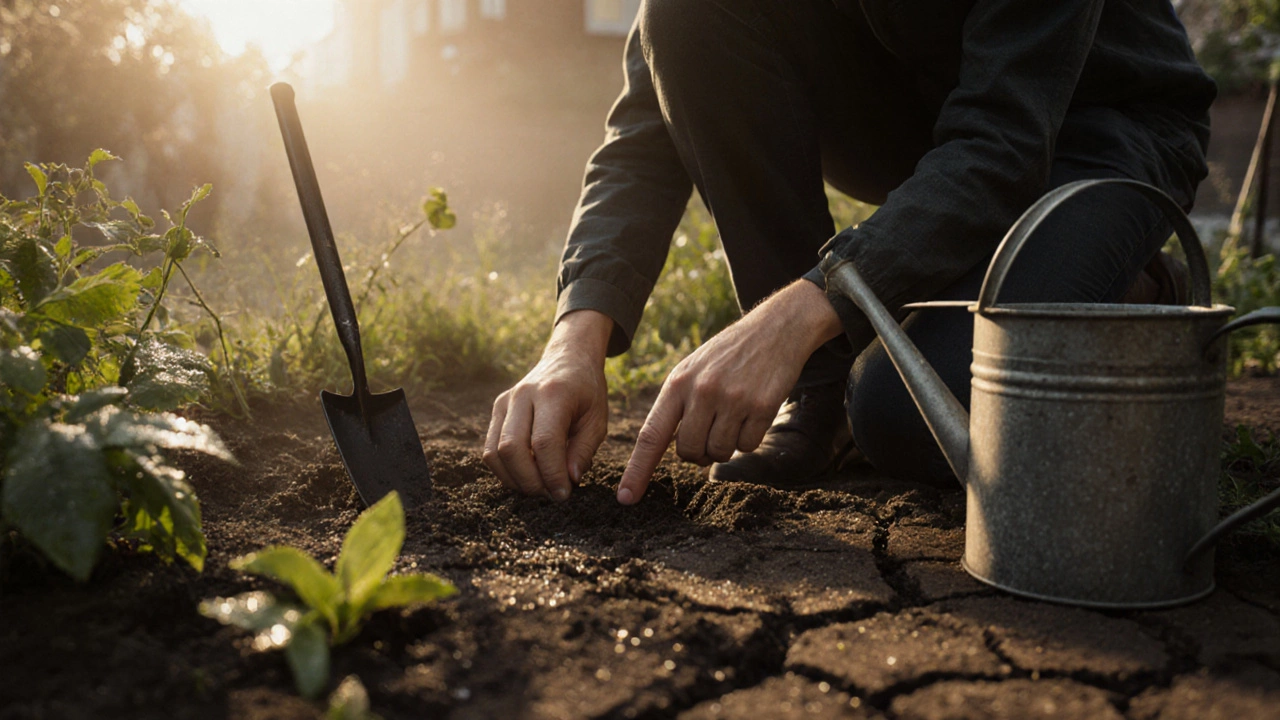A good gardener isn't defined by tools or space, but by observation, patience, and working with nature. Learn the habits, mindset, and simple practices that make gardening succeed-no matter your experience level.
Gardening Habits: Smart Practices for Healthy Indian Gardens
When you build solid gardening habits, consistent, thoughtful routines that lead to healthier plants and less frustration. Also known as plant care routines, they’re what separate thriving gardens from struggling ones—no matter how big or small your space is. It’s not about buying the fanciest tools or rare seeds. It’s about showing up daily with simple actions: checking soil moisture, spacing plants right, watering at the right time, and noticing changes before they become problems.
These habits connect directly to other key practices. For example, organic gardening, growing food and flowers without synthetic chemicals, using compost and natural pest controls isn’t just a trend—it’s a way to build long-term soil health. If you’re adding compost, broken-down organic matter that feeds soil and improves texture every few weeks, you’re already on the right track. Same goes for drip irrigation, a water-efficient system that delivers moisture straight to plant roots. Clogged emitters? Uneven watering? These aren’t equipment failures—they’re signs your irrigation habits need tweaking. Fixing them isn’t hard, but it starts with checking your system monthly, not waiting until plants wilt.
And if you’re gardening on a balcony or terrace—common in Indian cities—your habits have to adapt. Sunlight changes with the seasons. Wind dries out pots faster. Small containers mean roots hit limits quickly. That’s why choosing the right plants, like basil or zinnias, and knowing when to repot or rotate them matters more than you think. You can’t just plant and forget. You have to watch. You have to adjust. That’s the real work of gardening.
Many people think good gardening means having a green thumb. It doesn’t. It means having a routine. It means learning from mistakes instead of giving up. It means knowing that dense soil can be fixed with perlite and leaf mold, not just more fertilizer. It means understanding that hydrangeas don’t like hot afternoon sun on a concrete balcony, and that rabbits will snack on zinnias if you don’t put up a simple barrier. These aren’t secrets—they’re observations made by thousands of Indian gardeners, and they’re all in the posts below.
What follows is a collection of real, tested advice from people who’ve been there: the cracked pots, the overwatered herbs, the drip lines that stopped working, the soil that turned to clay after monsoon season. You’ll find answers to questions you didn’t even know to ask. No fluff. No theory. Just what works right now, in India, in your space, with your plants.
